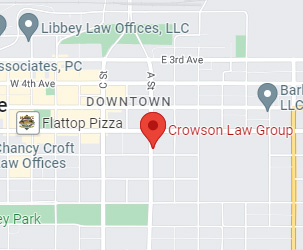Tips on Successful Court Self-Representation Pt. 1

Generally, it is advised that when you have a court case you should almost always have legal representation. This allows for no errors on your part when it comes to the preparation and presentation of your case in court. That being said, this article and a subsequent one will provide helpful tips to ensure success in small claims court during self-representation.
There are a number of aspects that any party involved in a court case needs to adhere to in order to ensure success in the courtroom. Some of these include the following:
- Deadlines – to start your lawsuit you will need to file papers in court; once these documents have been filed, they will trigger a number of deadlines. For example, the time frame in which you can request a jury trial as opposed to a court trial, the timeframe within which to tell your opponent the witnesses you plan on using at trial, etc. As a result, it is of the utmost importance that you meet these deadlines, failure to do so may determine whether or not your case is dismissed. Many courts have rules posted on their website providing information on everything you need to do before the trial. Note that the judge will not give leniency just because you have chosen to represent yourself. Failure to meet a crucial deadline could result in consequences such as receiving a monetary sanction, being unable to present evidence or testimony or your case being thrown out of court.
- Judge or jury – there are certain cases that can be heard only by a judge, for example in small claims court cases. However, in other instances each party has the right to request a jury trial. In most cases, an attorney will opt to choose a jury trial when the case requires sympathy. However, when the case involves complicated law or disturbing facts an attorney may choose a judge. That being said, when an individual chooses to represent themselves, they have a better time presenting their case to a judge than a jury. This is because jury trials are complicated due to the process used to select the jurors. Unfortunately, if your opponent requests a jury trial then you have to deal with the jury. In the event that you want to choose a jury it is important to inform the court in advance and deposit jury fees. In this regard take note of point number one on deadlines to choose a jury and the fee amounts required according to the court rules.
- Case elements – every legal claim has a number of elements that need to be proved in order for you to win. In legal cases, it is necessary that all elements be proven. Failure to prove one of the elements basically means you will lose the case. Therefore, it is important to carefully ensure that you can prove each and every element of your case. If you are the defendant in the case, ensure that you can disapprove at least one of the elements of your opponent’s case.
For legal advice on handling your personal injury lawsuit contact accident and injury lawyers today.


